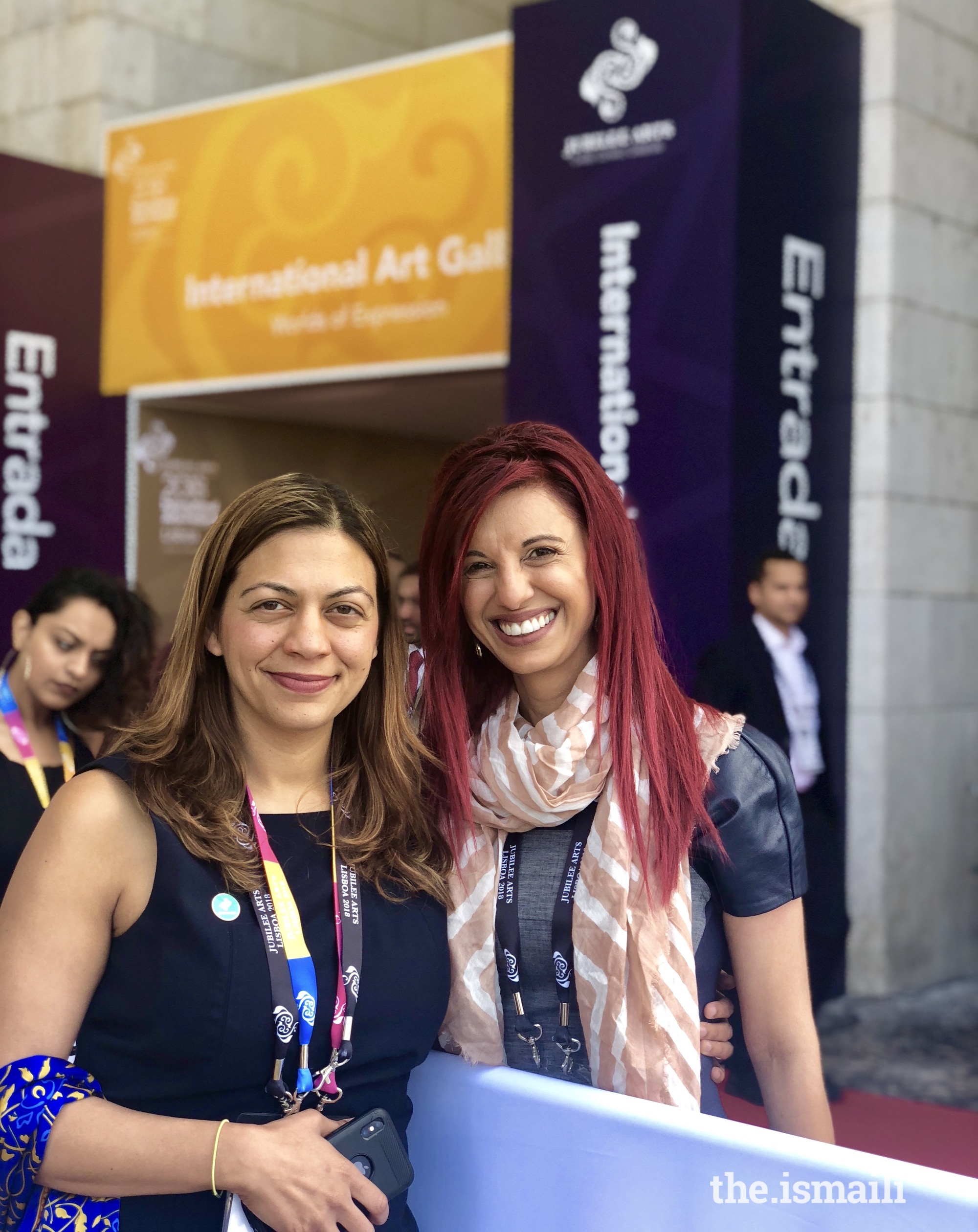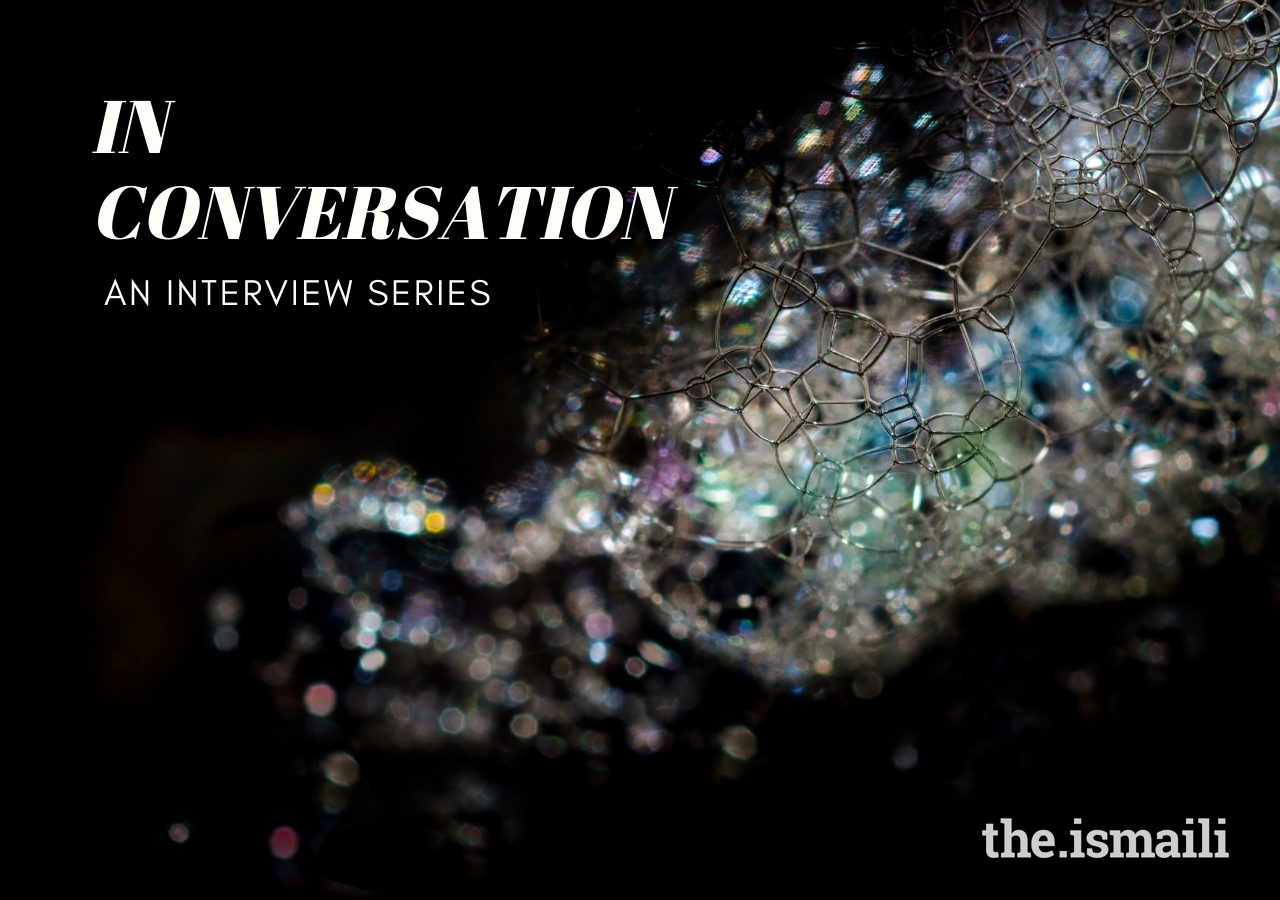How did the global Jubilee Arts initiative come about, and what is its aim?
Jenny: Jubilee Arts is the first programme to bring together a network of established and aspiring Ismaili artists, intending to catalyse artistic interests, abilities, and appreciation within the global Jamat, on an international platform.The aim of Jubilee Arts is to respond to Mawlana Hazar Imam’s aspiration that the full spectrum of artistic endeavour should be cultivated, developed, and promoted in the multiple traditions of the global Ismaili Jamat. The vision is to create an environment for nurturing arts and culture within the Jamat. Jubilee Arts endeavours to provide opportunities for all Ismaili artists and performers to showcase their talents across cultures and countries in dance, film, musical performances, visual arts, and more.
What did Jubilee Arts look like during the Diamond Jubilee year?
Jenny: During the Diamond Jubilee, Jubilee Arts events were comprised of Regional and National Arts Festivals celebrating a wide range of art forms. Twenty Ismaili National Council jurisdictions representing 52 countries participated. These regional and national festivals events helped to shine a spotlight on artists, photographers, film directors, musicians, singers, dancers, and other performers from within the Jamat. In total, over 650 artists qualified to have their art showcased at the International Arts Festival.
Nabila: The celebrations culminated at the inaugural International Arts Festival (IAF), which took place in Lisbon, Portugal from 6–9 July 2018. The IAF was one of the flagship programmes of the Diamond Jubilee Celebration, marking the culmination of Mawlana Hazar Imam’s Diamond Jubilee year.
During the historic four‐day, multidisciplinary arts festival, artists, spectators, and volunteers celebrated the best artistic talent from across the global Ismaili community. The IAF was a unique opportunity for the Jamat to experience its rich cultural traditions and plurality through three anchor programmes: the International Art Gallery (IAG), International Film Festival (IFF), and International Talent Showcase (ITS).
Along with these core events, the IAF included performances, outdoor activities, hands-on workshops, and other exciting and engaging entertainment events by our artists for the benefit of Jamati members of all ages.
Various countries around the world held national events to celebrate the arts during the Diamond Jubilee. What were you surprised or impressed by?
Jenny: I was impressed to learn about how enthusiastic the Jamat was to showcase their enormous talents, and how the arts united our global community. The programme was launched in October 2017 and within a couple of months, thousands of artists mobilised to create artwork that would inspire the world. Most encouraging was that our global Jamat gave Jubilee Arts a chance. With over 23,000 artists and 90,000 spectators attending various festivals, it was clear that the programme created a platform for our community to celebrate the arts, showcase our talents, and provide the opportunity to unite as a global community.
Nabila: I was pleasantly surprised how many artists there are within our global Jamat. It’s positively overwhelming to understand how much talent exists in the Jamat; the numbers are striking! I was especially touched by how many young artists participated, alongside the support of their families. From an organisational standpoint, I was impressed with how quickly the volunteer teams came together, regardless of their time zone or country, as a united Jubilee Arts family. This was evident in the exciting and memorable regional and national art festivals hosted in most jurisdictions by National Arts Coordinators in such short time frames.
The International Arts Festival held in Lisbon last July was the first such event. What was it like to organise an international project of this scale?
img_2324.jpg

Jenny: Being part of the organising team was humbling, and an honour. Most notably, I quickly learned about Ismaili professional industry leaders in visual, film, and performing arts who wholeheartedly joined the team and shared their talents and skills to create a programme that integrated global best practice. Furthermore, our team was always focused on ensuring that two key stakeholders were prioritised: the artists and the Jamat. Once we shared this goal, everything fell into place. Our 500+ volunteers worked day and night to provide a magical experience full of love, gratitude, positive energy, celebration, and professionalism for the artists and the Jamat.
Nabila: Priceless. I recall the day the concept of Jubilee Arts was born; it was two years ago, and since then the journey has been like walking on a cloud. I feel blessed to have been part of a milestone inaugural programme, that in many ways, simply flowed. And the secret to the flow: the Jubilee Arts family, comprised of over 500 brilliant, creative, organised and driven volunteers from around the world. How could this experience be anything but priceless?
Can you describe a standout memory of your experience that you have kept up to now?
Jenny: When the artists took the stage during the first International Talent Showcase night, the Altice Arena with over 9,000 people, roared and vibrated with applause and tears of joy. In that moment, the ideals of brotherhood which define our global Jamat were actualised for me. Thousands of Ismailis from dozens of countries stood and cheered for artists they had never met but were so happy to be in the same room with. It made me realise that despite the physical distance, we all empathise with the struggles faced by our brothers and sisters living in fragile and difficult circumstances and share their joy and success. Simply knowing that we were together, as one Jamat, created an energy of love and hope that will stay with me forever.
Nabila: I have laid awake many nights, trying to think of that standout memory. Truthfully, every time I reflect on the last two years, a smile and warm sense of gratitude consume me. When I close my eyes, I remember all the lines of enthusiastic Jamati members patiently waiting to enter the Art Gallery, Film Festival, and Talent Showcase. I was in awe of how excited they were to see the artists’ works. The excitement after they experienced what the artists had created; whether a painting, a documentary, or performing dance moves on the stage. Everyone had a smile on their face as they re-emerged out of the venues. The volunteers built the platform and the artists created the content. Together it became Jubilee Arts.
The arts are made up of many mediums including music, film, dance, architecture, photography, and others. Why are these important to us as a community?
Jenny: Art is a universal language, which transcends cultural boundaries by telling a story about a particular time and place. It encourages us to search deeper within, and thus learn more about ourselves. The Muslim community has a long history of participation in the arts, and Mawlana Hazar Imam has spoken of the importance of art on many occasions.
Jubilee Arts embraced a holistic approach to the arts. By including visual, film, creative and performing arts, we were able to integrate several categories across the full spectrum, showcasing the diversity of artistic talent, and how the Jamat is excelling in so many artistic endeavours.
It also reinvigorated our community’s interest in the arts, which has a historic significance in the Ismaili tradition, and will hopefully inspire future generations to continue to make significant contributions to the arts.
How will the legacy of Jubilee Arts continue over the coming years?
Jenny: The arts are clearly celebrated within the Ismaili community and Jubilee Arts will hopefully continue to be a vehicle to celebrate and showcase the incredible artistic talent that exists within the global Jamat, through regular and structured institutional programming, as is the case with sports and fitness through the Jubilee Games. The International Arts Festival is also intended to become a feature in the global Jamati calendar, to be held at regular intervals.
We also hope to follow the progress of young artists, providing them support and encouragement to continue creating, and developing their talent. We look forward to seeing and hearing their work again in the future.
A few months on, what would you say to those involved?
Jenny: The Jubilee Arts journey was full of hope, love and celebration. The primary reason for its success was our volunteers and our artists. Over 500 volunteers dedicated themselves to the programme for over a year. The passion, dedication, and humility with which our volunteers served exceeded anything we could have imagined. And, our talented artists gave Jubilee Arts a chance. Over 23,000 artists participated from all over the world, and they brought forth their talent and passion for the arts and for our community. This energy inspired the team to create the most magical and high impact experience we could imagine.
Nabila: I want to take this opportunity to say thank you to each and every person that made Jubilee Arts possible. Everyone involved made a significant contribution, including the International Task Force, the Lisbon leadership and volunteers, Coordinators and Leads and all team members who worked tirelessly to make the vision a reality. Our artists who brought their best to the stage, at the Art Gallery, the Film Festival, and the Talent Showcase. They all brought Jubilee Arts to life. Everyone put their heart and soul into this International Programme.








